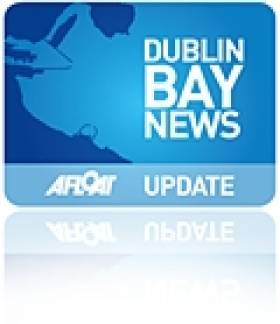Displaying items by tag: MClass
Stealth Frigates to Visit Dublin Port
Two Dutch naval frigates, HNLMS Tromp and HNLMS Van Amstel are due to arrive into Dublin Port tomorrow for a courtesy visit over the weekend, writes Jehan Ashmore.
The Royal Netherlands Navy HNLMS Van Tromp is a De Zeven Provinciën-class air-defence and command frigate (LCF). The class has a striking streamlined visual appearance, through the use of stealth design technology. The stealth design is to minimise the vessels signature as much as possible from the detection of enemy vessels using radar.
At 6,050 tonnes, the stealth frigate is one of five built by the Royal Schelde Group, of Flushing, Netherlands. Spain and Germany also participated during the design stage of the 144-metre class which are powered by gas turbine engines capable of reaching 30 knots.
They are equipped with an Oto Breda 127 mm cannon, vertical launch system (VLS) Mk 41 for Evolved Sea Sparrow Missile (ESSM), Standard Missile and Harpoon Missiles. In addition the frigate has a Goalkeeper (rapid-fire gun), a Oerlikon 20 mm machine gun and a Mk. 46 Torpedo weapon system. The vessel also has the ability to carry a Lynx or NH-90 helicopter.
The second frigate to visit the capital is HNLMS Van Amstel, one of two multi-purpose M-class frigates. The frigate which is also known as the Karel Doorman class can be used for surface warfare and anti-submarine warfare. They also have their own air-defence capabilities.
The 122-metre vessels displace 3,300 tonnes and have a two Rolls Royce (Spey 1A) gas turbines delivering 29 knots. The class are equipped with an array of defence / attack armament to includes an Oto Melara 76 mm gun for surface and air targets, a Harpoon weapon system and a NATO Sea Sparrow Vertical Launch weapon system for use against air targets at close range. Like the De Zeven –class the M-class frigate is also capable of carrying a Lynx helicopter.





























































